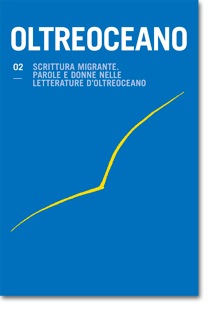Esule e migrante: dubbi antichi per donne moderne
Keywords:
matria, patria, esilio, emigrazioneAbstract
Uno dei più profondi istinti di proprietà e di appartenenza dell’uomo è l’istinto territoriale: il territorio, la casa, il paese, la patria. Per donne e uomini, eroine intellettuali e semplici girovaghi, vale l’equazione che il tempo felice è il tempo dell’amore della terra, della matria / patria nella mansuetudine in cui il desiderio e il possesso si placano a vicenda.
Exile and Migrant: Ancient Doubts for Modern Women
One of mankind’s deepest instincts of possession and belonging is the territorial instinct: the territory, the home, the country, the homeland. Both men and women, whether they are intellectual heroines or simple wanderers, cherish the equation between the time of happiness and the time of love for the homeland/motherland, when desire and possession appease each other.
Downloads
References
Dante (1928): La Divina Commedia. Testo critico Giovanni Andrea Scartazzini e Giuseppe Vandelli, Milano: Hoepli.
Omero (1982): Odissea. Ed. Fausto Codino e Rosa Calzecchi Onesti. Torino: Einaudi.
Virgilio (1999): Eneide. Ed. J. Perret e R. Lesueur. Paris: Belles Lettres.
Klein, M. (1971): Analisi di un bambino,1961. Torino: Boringhieri.
Klein, M. (1978): Lo sviluppo di un bambino. In M. Klein, Scritti, 1921-1958 (s.p.). Torino: Boringhieri.
Downloads
Published
How to Cite
Issue
Section
License

This work is licensed under a Creative Commons Attribution-NonCommercial-ShareAlike 4.0 International License.
The authors undertake to comply with the following conditions, which are considered accepted at the time of submission of their contributions.
The sending of a text implies that it is unpublished and not submitted to be published elsewhere.
1. If accepted, the author shall confer on the publisher the right to publish and distribute it both in paper form and in the online electronic edition. The published articles will be downloadable and made available in open access.
2. Provided that it correctly indicates that the first publication took place in the journal Oltreoceano. Rivista sulle migrazioni the author has the right to: a) reproduce the article in separate extracts or collected in a volume; b) publish the article on their personal website or teaching site provided that these sites are of a non-commercial nature; c) deposit the article in online archives of a non-commercial nature, linked to the institution they belong to or as part of projects for the non-commercial dissemination and open access of scientific works.
The use of contributions by third parties, for commercial or otherwise unauthorized purposes, is not allowed. The publisher declines all responsibility for the unauthorized use of the material published in the journal.












